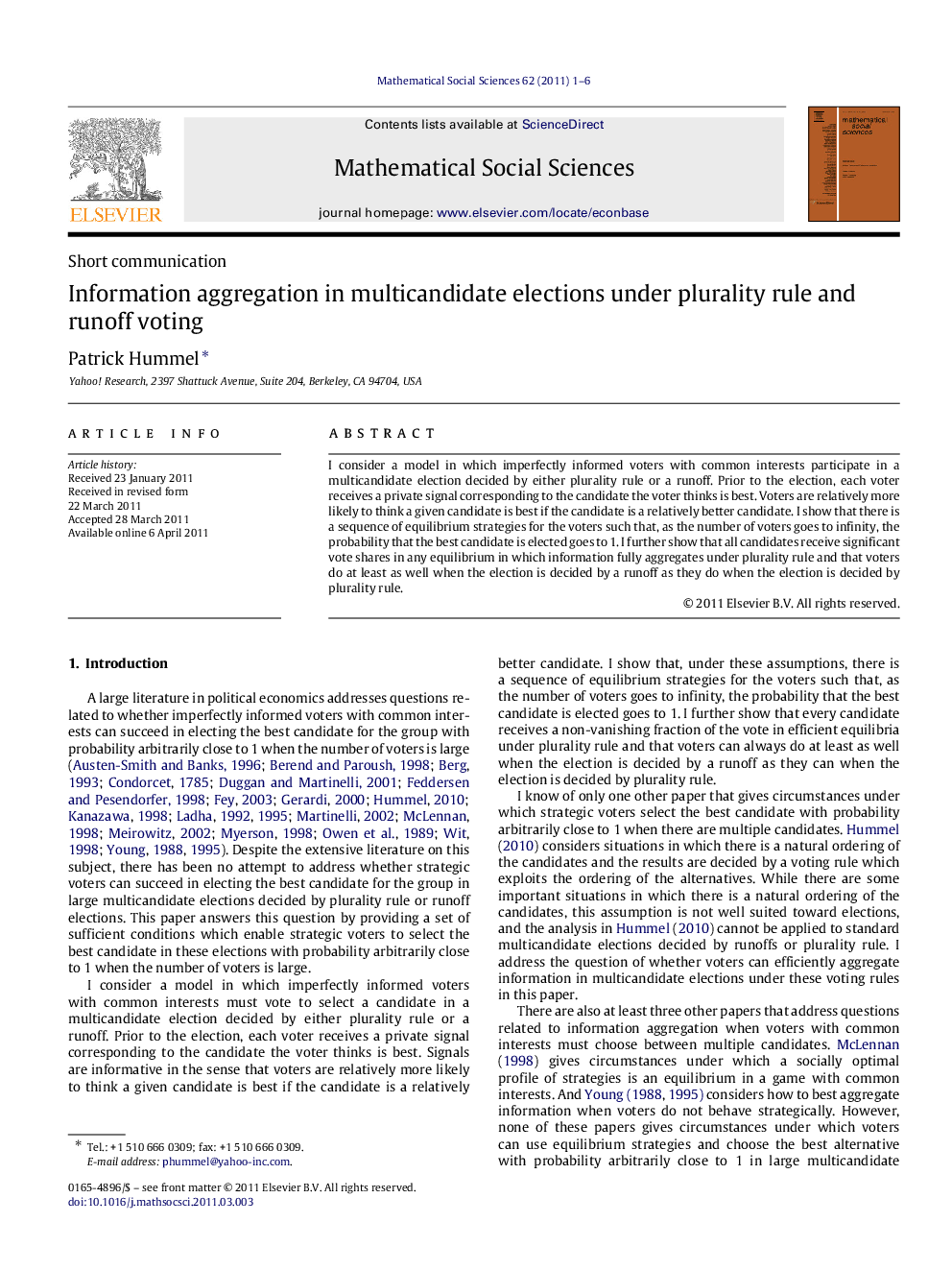| Article ID | Journal | Published Year | Pages | File Type |
|---|---|---|---|---|
| 972257 | Mathematical Social Sciences | 2011 | 6 Pages |
I consider a model in which imperfectly informed voters with common interests participate in a multicandidate election decided by either plurality rule or a runoff. Prior to the election, each voter receives a private signal corresponding to the candidate the voter thinks is best. Voters are relatively more likely to think a given candidate is best if the candidate is a relatively better candidate. I show that there is a sequence of equilibrium strategies for the voters such that, as the number of voters goes to infinity, the probability that the best candidate is elected goes to 1. I further show that all candidates receive significant vote shares in any equilibrium in which information fully aggregates under plurality rule and that voters do at least as well when the election is decided by a runoff as they do when the election is decided by plurality rule.
